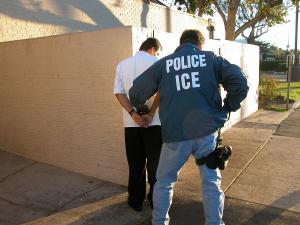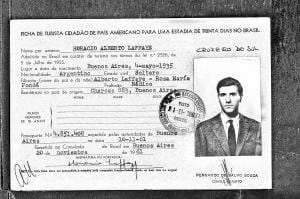 Immigration is a deeply fraught subject in the USA and around the world. Peoples across the globe are on the move more than they ever have been in all of human history. Literally millions of our fellow humans are moving from their homelands to other places, or are moving great distances within their own countries. The reasons are many: war and strife, economic exigency, loss of land, climate change, among others. Discussions of immigration into Europe from Africa and the Middle East, into India from Pakistan, into Bangladesh from China have appeared over the past decade, raising fears among the accepting people that they will be unable to maintain the way of life in the country that they have long known. Some of these fears are real, but many are artificially stoked by politicians that seek election or continued support based on such fears. The USA over the past two decades has been especially prone to such fears.
Immigration is a deeply fraught subject in the USA and around the world. Peoples across the globe are on the move more than they ever have been in all of human history. Literally millions of our fellow humans are moving from their homelands to other places, or are moving great distances within their own countries. The reasons are many: war and strife, economic exigency, loss of land, climate change, among others. Discussions of immigration into Europe from Africa and the Middle East, into India from Pakistan, into Bangladesh from China have appeared over the past decade, raising fears among the accepting people that they will be unable to maintain the way of life in the country that they have long known. Some of these fears are real, but many are artificially stoked by politicians that seek election or continued support based on such fears. The USA over the past two decades has been especially prone to such fears.
In many ways, the 2016 election of Donald Trump to the presidency was based on his ability to fan the smoldering flames of these fears, often deep-seated ones. America is, of course, a land of immigrants, beginning with the arrival of the English pilgrims on our shores some 400 years ago, and followed by waves of peoples from all over the world, including those brought here from Africa against their will not long after the pilgrims landed at Plymouth. Increasing numbers of migrants from France, Germany, Ireland, the Scandinavian countries, Central and South America, and the complex mix of people from Asia. It should be remembered that nearly one-half of Mexico was ceded to the expanding USA as a result of the Mexican War, including Texas, New Mexico, Arizona, and California. In those four territories, later to become states of the Union, were found vast resources of gold, silver, copper, and oil, deposits of which formed the economic backbone of the emerging power of the US.
In the 20th century, the USA established quotas of persons who could enter the country from the various nations of the world. Through Ellis Island in New York’s harbor came literally millions of human beings who became the ancestors of countless more millions of contemporary America’s citizens. Many of you reading this, can no doubt count as your antecedents someone who entered the country through that famous portal on the East Coast. And perhaps your current name is the result of some official’s inability to pronounce a Czech or German or Italian or French or Russian name, changing Goldschmidt to Goldsmith, for an easy example, or Francesceti to Frances for a rather more difficult one. The huge influx of migrants in the late days of the 19th century and the early days of the 20th, eventually slowed for the simple reason that any nation that creates a safety net for its citizens (e.g. Social Security, and later in the century, Medicare and Medicaid) cannot long sustain unlimited openness to anyone and everyone. The Statue of Liberty’s promise of the “Golden Door” and its request that all “poor and hungry” are welcome, ran into the reality that the nation simply could not embrace all who would come, lest its resources be so taxed as to make it impossible to provide equal service to all.
These fears have in part been realized in the late 20th and early 21st centuries. As the world’s economies became increasingly unable to sustain national populations, and as money was increasingly concentrated in fewer and fewer hands, people began to look for countries that could offer to them a better standard of living along with freedoms and opportunities. The USA increasingly was seen the world over as quite literally a golden land where hard work could lead to success and freedom was guaranteed for all who found their way here. However true or false that perception was, millions wanted to come here to find out whether it was as grand as they had been taught. Soon, our southern border with Mexico became a highway for many Mexican nationals who found work here, enough work so as at first to send money back to families who still lived south of the border, and later in many cases found lives here in the USA, raising families and becoming a part of the complex fabric of the country. For example, I lived in Dallas, Texas for 40 years, beginning in 1968. When I first came to Dallas, the city was deeply segregated with African-Americans primarily living south of downtown and Mexican- Americans primarily dwelling in West Dallas. The languages of the city were overwhelmingly English and Spanish, with near constant demands that all learn and speak English. When we left Dallas for Los Angeles in 2017, reports said that over 200 first languages were spoken in Dallas county, some languages that many hardly knew existed at all! A nation of immigrants indeed!
But with the vast increase in linguistic and ethnic diversity has come an equal increase in the fear of change; the old view of an English-speaking white America is fast coming to an end. This year for the first time the huge California state college system, has enrolled more brown students than white ones, signaling that a new day has dawned. I celebrate this new reality as a visible sign of the rich diversity of God’s world, but others see in these changes only danger and loss of what they have known.
The current president of our country has played on those fears, announcing far stricter border controls, especially at the southern border, claiming that those who are coming in “large mobs” are “rapists and murderers,” hardly the sorts of people we want to live among us. He has promised a “big, beautiful” wall to keep these “undesirables” out, and those who seek sanctuary here, fleeing violence and economic hardship, are treated with contempt, dividing children from families, demanding that they “stay in Mexico” while their cases are taken up in overcrowded courts, procedures that can take months, if they are ever taken up at all. It remains true that we cannot welcome anyone who wishes to come; no one with any sense of reality wishes completely open borders, but generosity has been the guiding light of our country for decades, and many of us wish for a more sane immigration policy that balances more fairly and humanely generosity with economic and social reality.
What can we learn from our ancient Bible? As usual, the answer is a complex one. I think it is fair to say that the struggle that we are currently having over immigration policy is matched by what the Bible says about immigration. A few brief portraits must suffice. Israel, too, was a nation of immigrants, entering a land lived in for centuries by native peoples, driving some of those natives out, but more likely living among them and becoming over time a mixed race, dwelling first in the highlands of the country’s north and center, and eventually annexing more of the land to create, under David’s kingship, a land some 100 miles north to south, stretching from the Mediterranean Sea to the Jordan River, west to east. Because Israel was situated between the great powers of the Middle East, Egypt in the West and various Mesopotamian powers to the East, there was constant movement through the land in both directions throughout history. Thus, there was surely a continuous concern about those foreigners who chose to live for a time in the land or to take up a more permanent residence, for whatever reasons. I doubt foreigners were always completely welcome in the land, but it is certain from various texts that rules and customs were devised to deal with those who were not viewed as “one of us.” It cannot finally be determined what those rules and customs were in every age, but certain texts are quite clear, especially from the days of the priestly writers, usually ascribed to the 6th or 5th centuries BCE.
One noteworthy text is found in Lev.19:33-34. This text rings with a rich power and could serve as a hallmark passage for those seeking a more generous way to treat the immigrants in our midst. “When a ger (the NRSV translation of ‘alien’ smacks too much of SciFi invasion tales; Hebrew ger means a stranger, a foreigner who has come to live in Israel for a brief time or permanently) lives with you in your land, you shall not oppress the ger.” At the very least, an immigrant deserves respect and fair treatment from the natives of the land. “The ger who lives with you shall be for you as a citizen among you; you shall love the ger as you love yourself, for you were gerim in the land of Egypt.” This text is important, primarily because it is preceded in the same chapter by the far more famous demand that “you shall love your neighbor as you love yourself” (Lev. 19:18), a command that Jesus repeats in several New Testament places when he is asked to summarize the essence of the law. The subsequent command to love the immigrant as you love yourself suggests clearly that the immigrant is in fact your neighbor and is fully worthy of your love.
I admit that this Levitical text has long been my guiding light toward a generous and biblical policy of immigration. It hardly solves all of the complexities of such a policy, but it does provide a baseline, a high bar, by which any such policy can be judged. I hope that the next US administration may continue to seek for a just and humane policy of immigration and that any language of walls and family separations may be abolished forever. “You must love the immigrant as you love yourself.” That has a most divine ring to it!
(Images from Wikimedia Commons)











